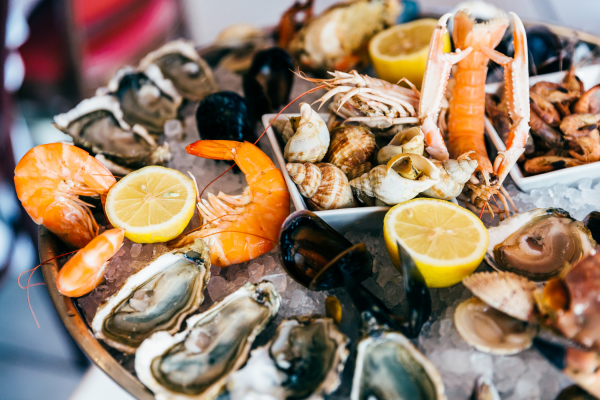
How often do you eat seafood – fish and shellfish – per week? And do you alternate in what you eat or do you always reach for the tuna or salmon? There are very good reasons to eat more seafood and alternate them with each other, because they contain substances that are very beneficial for our body… In this article we tell you exactly what those benefits are, are you reading along?
Several studies have shown that people who regularly eat fish have a 20 percent lower risk of developing depression. This is due to the anti-inflammatory properties that seafood contains, which is due to the high amount of DHA and EPA omega-3 fatty acids they contain. In addition, seafood also helps by stimulating the production of serotonin in your brain and promoting its absorption.
Read also :'4 super easy recipes to eat more omega 3'
Not only can the DHA and EPA omega-3 fatty acids counteract the symptoms of depression, research has also shown that these fatty acids can play a role in reducing the risk of getting Alzheimer's or dementia. It seems that eating seafood just once a week can have that effect. The best options are wild salmon, halibut and swordfish, as these contain vitamin D, amino acids such as tryptophan and the omega-3 fatty acids EPA and DHA, all of which you need to support your cognition and mood.
Those omega-3s — which are healthy fatty acids — can also improve your heart health. Research shows that eating seafood twice a week reduces the risk of death from heart disease by 36 percent. Including nutritious seafood in your diet can reduce inflammation in your body and improve your cholesterol and triglyceride levels, protecting your heart.
What those omega-3 fatty acids are all not good for… Because they help to lower your inflammation levels, they also have a positive impact on your immune system. In addition, seafood also contains vitamins A, D, selenium, zinc and glutamine, nutrients that are all known to boost your immune system.
Are you pregnant? Although you can of course not eat all seafood, they do contain essential substances (yes, there are the omega-3 fatty acids again) for the development of your child. It promotes the development of vision, resistance, nervous system and brain growth. A Harvard study found that eating seafood during pregnancy is not only good for the health of the mother, but also for the development of the baby's brain. This effect is not only noticeable at a young age, but also as the child grows older; it even seems to be able to bring about an increase in IQ…